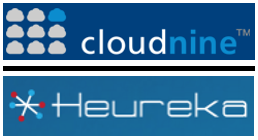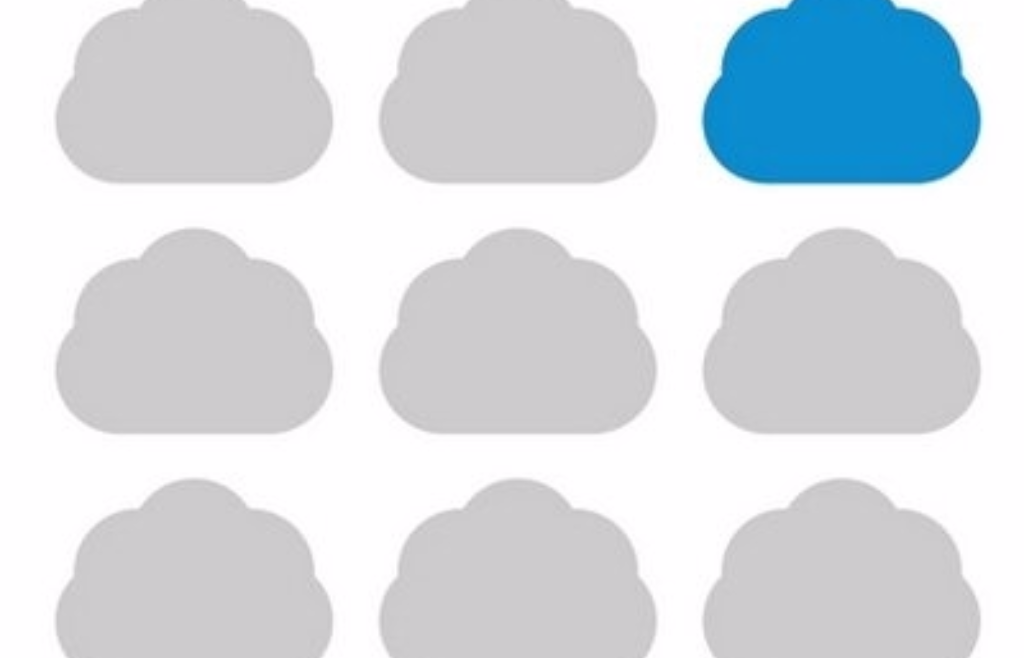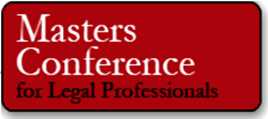As we indicated yesterday, The Masters Conference is going on today and tomorrow in Washington DC! Let’s take a look at today’s events!
The conference is being held at the Capital Hilton, 1001 16th St NW, Washington, DC 20036. Registration begins at 7:30am on Tuesday, with sessions starting at 8:45am. Sessions run all day Tuesday and Wednesday.
Here is the list of today’s sessions:
8:30am – 10:45am:
Intro to becoming a Certified eDiscovery Specialist: Mary Mack and Helen Bergman Moure will be presenting LIVE Part One of The CEDS Online Exam Prep Seminar which is the ultimate tool to guide you through all the steps of the e-discovery process and prepare you for the CEDS Certification exam.
Part One Seminar topics include:
- Information Management and Litigation Readiness
- Project Planning
- Litigation Hold Implementation
Participants are eligible for a substantially discounted price on the balance of the Certified eDiscovery Specialist training package.
11:00am – 12:00pm:
Future of eDiscovery: Riding the Analytics Revolution: Big Data plays a big role in litigation for many law firms and organizations. Having the ability to cull down your data earlier in the litigation cycle enables your firm or organization to work more efficiently and competitively. Technology is increasingly playing a key role in helping firms and organizations effectively identify and manage the data most important to your litigation. This session will discuss the emerging trends around analytics in eDiscovery, and how your firm or organization can implement best practices to ensure the highest quality results at a lower cost than traditional document reviews.
Moderator: Tom O’Connor, Panelists: Jeannine M. Kenney, Sunil Ohri, Tracy D. Drynan.
The Internet of Things (IoT) Creates a Thousand Points of (Evidentiary) Light. Can You See It?: The Web 3.0 has been dubbed the “Internet of Things”. This is an ecosystem of interconnected sensory devices that perform coordinated preprogramed – and even learned – tasks without the need for continuous human input. Combined with existing data sources (ie. e-mail, social media, smart phones, enterprise applications, and system logs), this represents an extremely rich source of data.
Within that data lies evidence. Valuable evidence.
Also within that data lies duty, obligation, risk, and opportunity for litigators. Join us for a discussion about the internet of Things, and all things structured, and how it fits (or doesn’t fit) within the EDRM.
Moderator: Charlie Platt, Panelists: Don Meyers, Mason Pan, Nick Kaywork.
12:00pm to 1:30pm:
10 Years Back, 10 Years Forward: The Evolution of Automation in eDiscovery: This unique session highlights the progress of eDiscovery technologies during the last decade and looks forward through the lens of innovation to the next ten years data discovery. This information-packed session includes some of the world’s foremost authorities on eDiscovery who will be sharing their thoughts, considerations, and recommended best practices for the use of Technology-Assisted Review. The session format will allow each expert an opportunity to present followed by a short dialogue. Additionally, the conclusion of this expanded lunchtime session will recognize at a high-level the aggregate recommendations of this expert panel.
Moderator: Mary Mack, Panelists: Bill Dimm, Bill Speros, David Horrigan, Doug Austin, George Socha.
1:45pm – 2:45pm:
Cybersecurity, eDiscovery, and Your Outside Counsel: What you don’t know CAN hurt you: As technology adoption gains strength across the legal industry, and both corporate counsel and law firms expand their use of outsourced vendors for legal support services such as eDiscovery, understanding data privacy and information security risks has become a critical element of vendor and law firm management for every company.
With the number of threats, hacks, and breaches at an all-time high, what you don’t know about your vendors’ cybersecurity practices can hurt you. This session will explore:
- Common cybersecurity challenges in today’s legal and eDiscovery environment
- Hidden issues and “land minds” that can increase your data security risks
- Managing security with offshore vendors: Risky proposition or smart solution?
- Beyond ISO 27001 basics: Advanced methods for protecting client data
Plus, attendees will receive a valuable take away tool, Evaluating Cybersecurity Practices: 10 Questions to Ask Outside Counsel and eDiscovery Vendors.
Moderator: Christian Dodd, Panelists: Antonella Commiato, David M. Hickey, Ken Smiley.
Benefits and Challenges in Creating an Information Governance (IG) Program: Information governance is a comparatively new concept and is evolving fast. Gartner defines information governance as the specification of decision rights and an accountability framework to encourage desirable behavior in the valuation, creation, storage, use, archival and deletion of information. It includes the processes, roles, standards and metrics that ensure the effective and efficient use of information in enabling an organization to achieve its goals. In this panel discussion we will discuss building and enhancing your information governance program. Attendees will learn about how this impacts downstream and what it means for you the e-Discovery professional.
Moderator: Dan Elam, Panelists: Carlos A. Leon, Kenya Parrish-Dixon, Esq., CEDS, Leigh Isaacs.
3:00pm – 4:00pm:
Analytics in our Community covering the pros and cons of the latest trends
Moderator: Richard Clark, Panelists: Anthony (AJ) Dobson, Ethan Ackerman, Paul Gettmann.
Spanning the gap: Discovery Counsel and Project Management
Moderator: Alexander Lewis, Panelists: Antigone Peyton, Bryant Gauthier, Ellen Pyle
4:15pm – 5:15pm:
Cybersecurity Bridging the GAP between Cybersecurity and The Legal Community
Moderator: Kevin Clark, Panelists: Leigh Isaacs, Scott Bilbrey, Susan Taylor.
Legal Project Management
Moderator: Bruce Malter, CEDS, Panelists: Ian D. McCauley, Michael Quartararo, Scott Bilbrey
CloudNine will be co-sponsoring the Happy Hour with ACEDS at 5:30pm, followed by the 10th Anniversary Masters Awards Gala dinner, which is benefiting the Georgetown Lombardi Comprehensive Cancer Center.
Click here to register for the conference. It’s not too late!
So, what do you think? Are you going to The Masters Conference this week? If so, come join us! And, as always, please share any comments you might have or if you’d like to know more about a particular topic.
Disclaimer: The views represented herein are exclusively the views of the author, and do not necessarily represent the views held by CloudNine. eDiscovery Daily is made available by CloudNine solely for educational purposes to provide general information about general eDiscovery principles and not to provide specific legal advice applicable to any particular circumstance. eDiscovery Daily should not be used as a substitute for competent legal advice from a lawyer you have retained and who has agreed to represent you.









